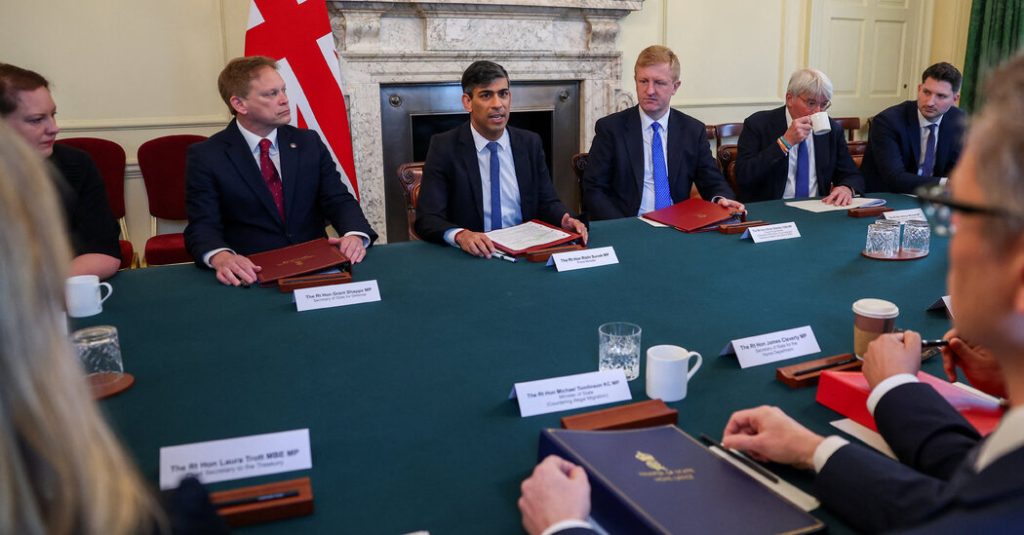Prime Minister Rishi Sunak of Britain’s Conservative Party faced backlash after posting a video promoting savings from a cut in national insurance contributions. Critics mocked his messaging and declared him a “pint-size loser,” a label that has been hard to shake amidst a string of losses in special elections and local elections. The party is trailing the Labour Party by over 20 percentage points in national polls, prompting concerns about the Conservatives’ ability to win in the upcoming general election. Despite mounting pressures, Sunak seems poised to lead the party into the election as potential successors position themselves for a post-defeat scenario.
Sunak’s leadership has come under scrutiny amidst economic challenges and missed promises related to tax policies, immigration, and healthcare. Critics cite his lack of charisma, political acumen, and relatability to voters. His wife’s billionaire background and his own tendencies towards expensive fashion choices have also contributed to his perception as an out-of-touch figure. While he has received praise for stabilizing the economy post-pandemic, his failure to offer coherent growth strategies has eroded his standing within the party and with the electorate.
Sunak’s stance on immigration, including the controversial Rwanda policy to deport asylum seekers without hearing their claims, reflects his efforts to appeal to the conservative base in regions that traditionally supported Labour. However, recent electoral losses in areas like Blackpool South highlight a potential shift in voter sentiment away from the Conservatives, particularly in post-Brexit strongholds. This realignment has posed a challenge for Sunak, as he navigates the conflicting demands of different voter demographics within the party while attempting to maintain a coherent strategy.
As the Conservatives face internal divisions and questions about their future electoral prospects, Sunak remains a politically embattled figure with a tenuous hold on leadership. Despite criticisms and setbacks, he continues to emphasize the government’s achievements and contrast them with Labour’s purported lack of a clear plan. However, the road to the general election remains uncertain, with the party struggling to bridge the divide between traditional conservative values and the evolving landscape of British politics.
The dynamics within the Conservative Party and the broader political landscape in Britain underscore the challenges facing Sunak and the party as a whole. Divisions between regions and voter demographics, as well as shifting priorities post-Brexit, create a complex environment for political strategy. Sunak’s struggles to reconcile differing demands from different segments of the electorate highlight the deeper tensions within the party and its struggle to maintain relevance and appeal in a rapidly changing political landscape.
Ultimately, Sunak’s leadership and the future of the Conservative Party are at a crossroads, with the upcoming general election poised to be a critical moment for the party’s survival. As Sunak grapples with internal dissent, policy challenges, and a shifting electoral landscape, the question of his ability to lead the party to victory remains uncertain. Whether he can navigate the competing demands of the blue wall and red wall voters, overcome his image problem, and rally support for the party’s vision remains to be seen, as the Conservatives face a challenging road ahead in British politics.


